September 08, 2025 | 09:25
Science
Education
Graduates
Priorities in natural resource management
The exploitation of mineral resources raises important issues regarding the use, efficient management, and other aspects of natural resources. Within the framework of the "Physical World" section panel discussions at YSU Alumni Forum, Gayane Shahnazaryan, Deputy Director of the Hydrometeorology and Monitoring Center of the Ministry of Environment of the Republic of Armenia and moderator of the section, opened the discussion on the priorities, challenges, and problems in natural resource management.
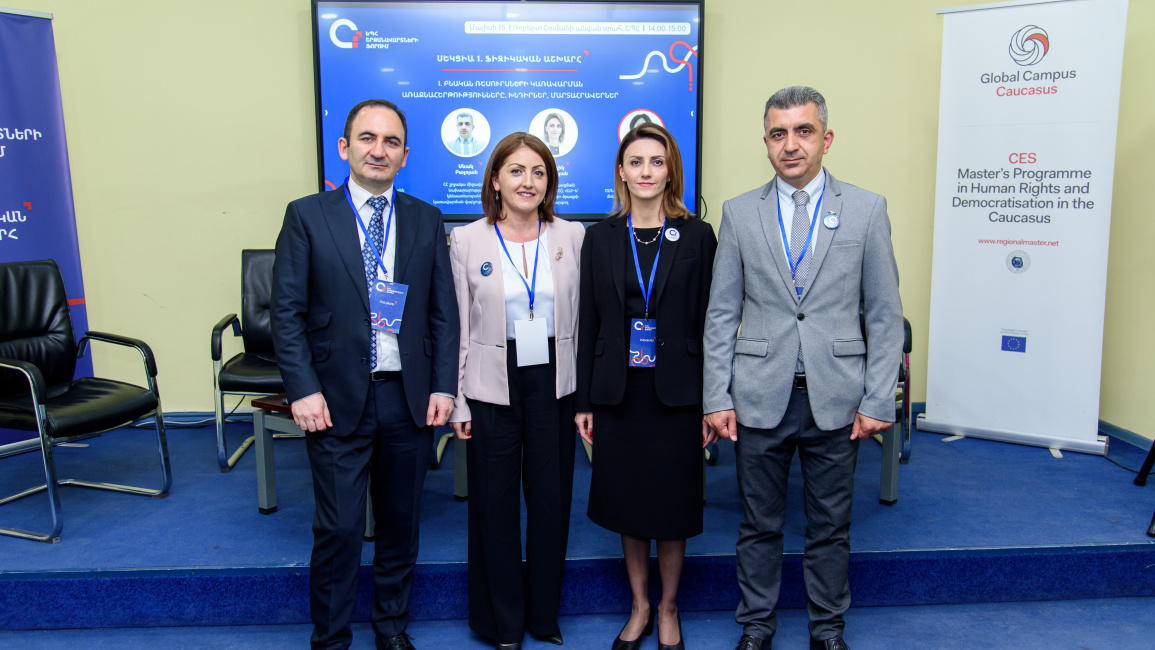
Speakers at the "Physical World" section’s thematic panel included Arman Vardanyan, Technical Director of the Zangezur Copper-Molybdenum Combine (ZCMC) LLC; Sevak Baloyan, Head of the Biodiversity Management Department at the Ministry of Environment; and Astghik Danielyan, Coordinator of the UNDP and EU4SEVAN project.
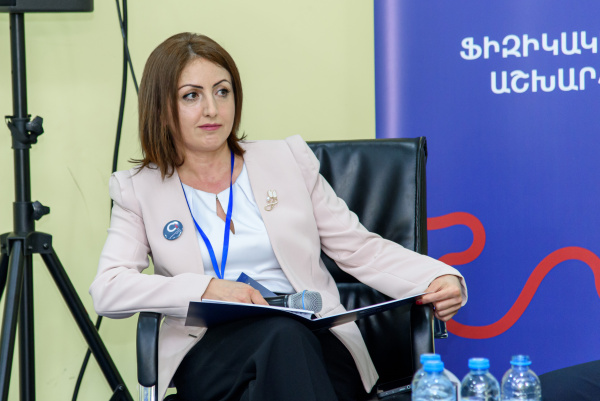
Natural Resources: Gift from God or Curse from God
The ZCMC technical director presented the company’s approaches to the rational and sustainable exploitation of natural resources. He detailed the new technologies implemented to reduce losses and increase efficiency, the application of international best practices, and other relevant issues related to sustainable management.
Sevak Baloyan addressed the meaning of rational (purposeful) use of natural resources. He noted that many people understand rational use simply as minimizing mineral extraction, whereas it actually involves the efficient use of natural reserves and a well-founded diversification strategy. This includes capital allocation for risk management, improving production efficiency, and more.
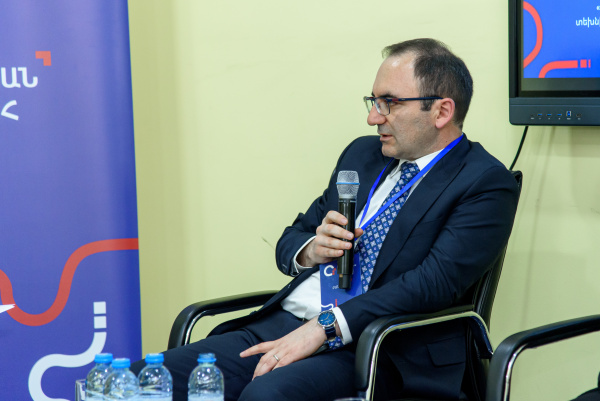
A striking example of reckless mineral exploitation is the phosphate mining on the small island of Nauru in the Pacific Micronesia region. Phosphate extraction, which began in the mid-20th century, became the economic backbone of the country. During the 1970s, Nauru had the world’s second highest GDP per capita after Saudi Arabia (adjusted for the exchange rates of the time, this figure is even higher today). The intensive exploitation peaked at the end of the 1970s, bringing wealth to all. However, a sharp drop in demand led to a devastating economic collapse, widespread poverty, and a severe political crisis. To this day, the country remains dependent on foreign humanitarian aid and struggles to recover.
In contrast, Norway, blessed with abundant oil and gas reserves, presents a positive example. The key to Norway’s success lies in risk management, capital allocation, protection against depletion, effective management, product diversification, and expanding market variety to improve production efficiency. Norway has established a sovereign wealth fund worth approximately 2 trillion dollars from oil and gas revenues and holds stakes in major companies worldwide.
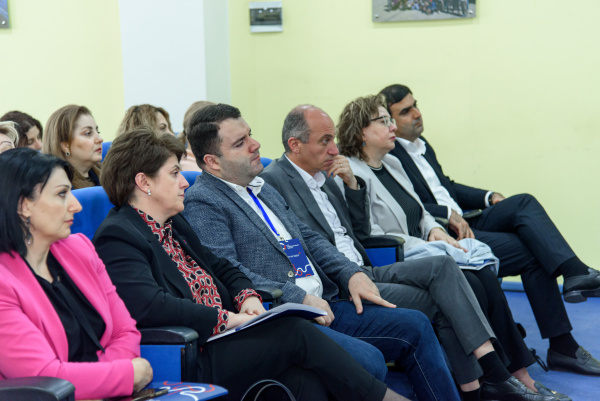
Another notable example is Saudi Arabia, whose economy relies about 40% on the oil industry. Anticipating future challenges, the country adopted a new economic vision in 2020 aimed at reducing this dependency by 2030.
"This does not imply a reduction in oil production, but rather a strategy to activate and expand other sectors of the economy to decrease oil’s share. Saudi Arabia is also actively promoting the extraction of solid minerals domestically," the speaker noted.
Sevak Baloyan also emphasized that Saudi Arabia has adopted clear and unambiguous legislation defining "the rules of the game," which serves as an important and exemplary precedent.
The economy of the enlarged communities of Kapan, Kajaran, and Meghri is also based on mining. Whereas during the Soviet era there were many factories and agricultural activities, these no longer exist. Therefore, practical measures are needed to create investment funds and establish a foundation for organizing and developing other industries.
Environmental Priorities
Astghik Danielyan addressed urgent priorities in the management of natural resources in Armenia, emphasizing that sustainable and effective management is not merely an environmental agenda but also a foundation for state development, a stable economy, and a healthy society.
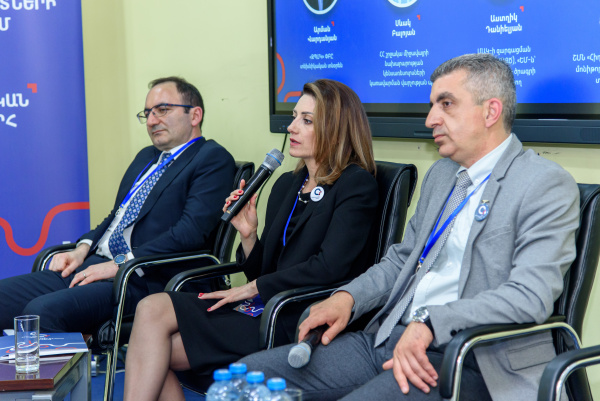
Drawing on the experience of implementing international programs, the speaker highlighted several systemic challenges. For example, reliable and quality data availability remains problematic, limiting evidence-based decision-making. A decrease in management effectiveness is also caused by unclear roles among stakeholders and insufficient communication between them. Continuous capacity building is essential, as this is a sector subject to ongoing change with much work to be done.
Among innovative achievements, she noted the application of ecosystem approaches in natural resource management, which, if successfully and purposefully implemented, will enable comprehensive cross-sectoral management.
Priorities in Biodiversity Management
Sevak Baloyan presented priorities in the field, stating: "The main challenge in managing biological resources (both animal and plant) is the lack of a comprehensive database at the national level, while every decision should be based on scientifically substantiated information and solid evidence. The ministry is addressing this gap through close cooperation with the Armenian National Academy of Sciences and Yerevan State University. Additionally, there are significant legislative and systemic gaps, which the ministry is actively working to reduce and eliminate."
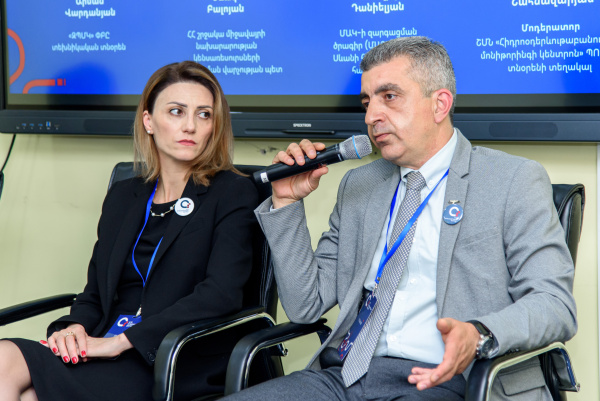
The speaker emphasized that since independence, Armenia has not conducted universal surveys of flora and fauna, only local studies within the framework of various scientific projects. Currently, with funding from the German Bank, plans are underway to conduct research and surveys on flora and fauna (particularly widely used plant species) as well as animal species used for industrial and recreational purposes.
For more details, watch the video below⤵️
Video

